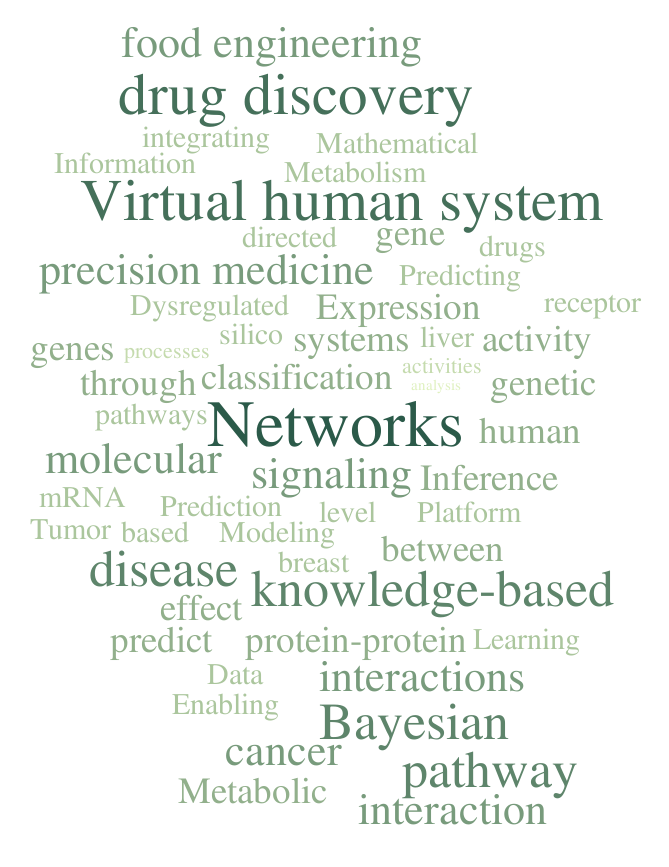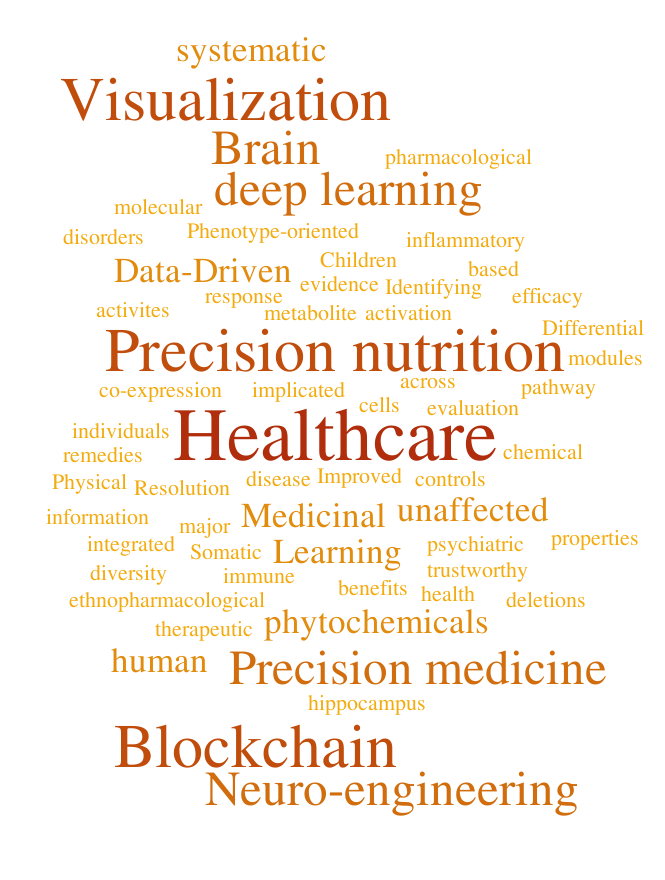
Data mining is the nontrivial extraction of implicit, previously unknown, and potentially useful information from large volume of actual data. BISL is developing various data mining techniques based on convolutional neural networks, recursive neural networks, support vector machine, and others, to solve prospective biomedical applications in precision medicine, drug discovery, and functional food development.
•In silico profiling of systemic effects of drugs to predict unexpected interactions, Scientific Reports, 2018
•Topological motifs populates complex networks through grouped attachments, Scientific Reports, 2018
•Deconvoluting essential gene signatures for cancer growth from genomic expressions in compound-treated cells, Bioinformatics, 2018
•Network-based classification of breast cancer metastasis, Molecular Systems Biology, 2007
•Inferring pathway activity toward precise disease classification, PLoS Computational Biology, 2009


